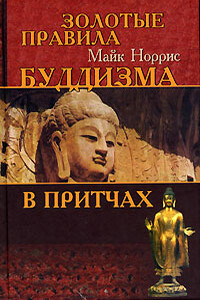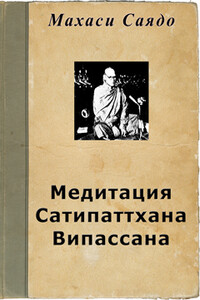Mastering the Core Teachings of Buddha. An Unusually Hardcore Dharma Book - [8]
When we try to find a good and helpful job, try to build a healthy marriage or raise healthy children, or shave our heads and move to a remote desert, we are working on training in morality. Whatever we do in the ordinary world that we think will be of some benefit to others or ourselves is an aspect of working on this first training.
The second two trainings, those having to do with attaining unusual states of mind and those having to do with ultimate realizations, have limits, in that we can master them absolutely. However, this cannot be said of the first training. There is no limit to the degree of skill that can be brought to how we live in the world. Thus, morality is also the last training, the training that we will have to work on for all of our life. We may be able to attain to astounding states of consciousness and understand the true nature of reality, but what people see and what is causal are the ways that these abilities and understandings translate into how we live in the world.
Morality, The First and Last TrainingMorality, The First and Last Training
There are basic assumptions that are extremely helpful when
undertaking training in morality. It is very helpful to assume that some sort of basic moral code is helpful for getting along in this world, and thus that there is some practical benefit to be derived from training in morality.
It is also helpful to assume in some loose and non-dogmatic way that the more good we do in the world, the more good there will be in that world, and thus the more good things will happen to us and all other beings. It is also worth assuming the corollary of this, that the more we do bad things in the world, the more bad things will be in that world for us and for all beings. These assumptions are not unique to Buddhism nor are they in any way extraordinary. Societies and traditions throughout the ages have advocated that we find a place in our life for these assumptions. Realize that defining bad and good is often very much a question of perspective, but don’t fall into the paralyzing trap of imagining that it is useless to try anyway. It is better to try to do your best and fail than not try at all.
Thus, we are assuming that what we think, say and do have
consequences. When undertaking training in morality, we are assuming that we can control what we think, say and do, thus creating consequences that are beneficial. Rather than accepting our current level of intellectual, emotional and psychological development as being beyond our power to change, we consciously and explicitly take the empowering view that we can work with these aspects of our lives and change them for the better. We assume that we can change our world and our attitudes towards our world. We take responsibility for our actions and their consequences.
Further, as a part of our empowerment, we assume that the more of our resources and abilities we bring to this training, the likelier we will be to succeed. We have a body, we have reason, we have our intuition, we have our heart, and we have ability to learn and remember. We have a community of others with wisdom to share, we have books and other media that contain advice for living the good life, and we have our friends and family. We can draw on all of this and more to try to live a good life, a life where our thoughts, words and deeds reflect as closely as possible the standards we have consciously adopted and defined for 5
Morality, The First and Last TrainingMorality, The First and Last Training
ourselves. The more consciously engaged we are with our task, the more we are likely to be successful.
Crucial to the control of what happens in our lives is our intent.
Thus, training in morality places a lot of emphasis on intent, with the basic assumption being that the more our intentions are kind and compassionate, the more we are likely to be able to manifest kind and compassionate thoughts, words and deeds.
Further, it is helpful to assume that training in morality requires us to pay attention to what is happening in our lives. When we are not paying attention to what we are thinking, saying and doing, we will not easily be able to craft these in a way that fits with the assumptions of this training. If we are not paying attention to what the consequences of our thoughts, words and deeds are, both in the short term and the long term, we are unlikely to be able to gain enough experience to be able to guide our training in morality successfully.
It is also helpful to assume that training in morality will help us when we get to formal meditation practices (the next two trainings in concentration and wisdom), providing a foundation of good mental and physical habits that can support those practices. Thus, even if we have little interest in being moral because of the benefits it can bring, if we are interested in obtaining the results of the other two trainings, we should also engage in training in morality.
These assumptions naturally lead to the specific agendas we have for what happens when undertaking training in morality. We consciously aspire to have the actions of our body, speech and mind live in a way that fits with the assumptions of this training. In short, we have standards for our mental, emotional and physical lives and we try our best to live up to those standards. When we are working on training in morality, we consciously cultivate actions, words and thoughts that we deem to be kind and compassionate. By “kind,” I mean that we work to promote the happiness and welfare of ourselves and others. By “compassionate,”

Буддийские ритуалы и традицииСоставлено авторами английского издания на основе лекций Аджана Сучитто и Аджана Чандасири в монастыре Читтавивека(Великобритания)Перевод с английского выполнил мирянин Кхантибалопо изданию «Buddhist rituals and observances» © Amaravati Publications 2001Сайт буддийской литературыwww.dhammabooks.ruТолько для бесплатного распространенияМосква, 2007 год.

Знакомые слова «пространство», «время», «знание», взятые в таком порядке, имеют тенденцию ускользать в своем значении. С позиций здравого смысла «пространство» идентифицируется с непрерывной протяженностью, рассматриваемой либо как пустота, либо как то, что содержит в себе вещи, будь то пылинка, скопление галактик или даже вселенная как целое. «Время» туманно интерпретируется как переход от прошлого к будущему или как среда, в которой события направлены так, что мы говорим о потоке или течении времени или о нашем осознавании, несомом во времени и через время.

Буддадаса БхиккхуКлючи к ИстинеPедакция перевода: 15.07.2008Перевод с английского: SVисточник: Сборник лекций "Keys to Natural Truth"Второе издание: 1999 The Buddhadasa Foundation (Чайя)

В предлагаемой читателю книге собраны классические притчи, приписываемые различным буддийским Учителям. Но эти притчи, отражающие золотые правила буддийского учения, уже давно преодолели границы Буддизма, в рамках которого были созданы, и являются сегодня достоянием мировой культуры, духовно обогащая любого человека, прикоснувшегося к их мудрости. Ведь прикосновение к мудрости через притчу, легенду, сказку – самый демократичный путь познания Истины.

Аджан СумедхоСборник бесед на ретрите.В книгу вошли беседы Аджано Сумедхо проходившие в: монастыре Читтавивека в феврале 1981 г., август 1982 г., апреле 1983 г., на летнем ретрите Буддийского Общества в Великобритании, 1979 г. и в 1982 г., на ритрите в буддийском центре в Оукен Холте, апрель 1979 г.,.
